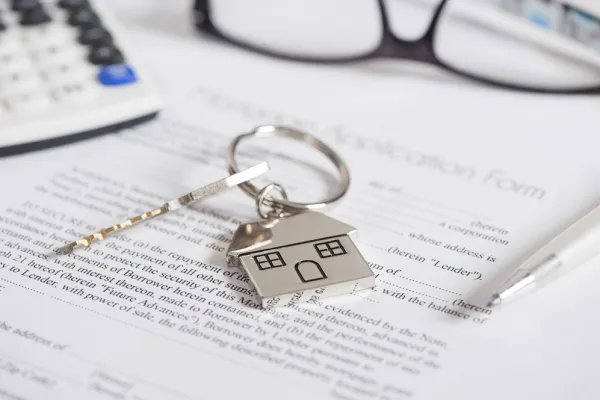Conveyancing makes a big difference on the success of your property transaction – including how quickly it gets completed.
So, it’s not surprising to hear that the best conveyancers are expensive.
In the article below, we’ve outlined the typical conveyancing fees and other property costs to consider.
What does a conveyancer do?
A conveyancer is responsible for the legal processes involved with a property transaction.
This is a significant aspect of the deal, meaning they charge a fee for these services.
Just a few (but not all) of the tasks that a conveyancer carries out include:
- Calculating any tax due
- Transferring funds from a property sale
- Gets all relevant property-related forms completed – e.g. TA10 and TA6 forms, etc.
- Writing up the contracts and getting them signed
- Completed searches on the property
In most cases, the buyer and the seller will have different conveyancers representing them.
These two professionals will then have to liaise to complete documents and forms on time, and the process should move along reasonably quickly.
Indeed, one (or more) of the conveyancers is the leading cause of delays in a house transaction. Getting a highly effective one is therefore extremely valuable.
What are typical conveyancing fees?
According to Compare My Move, the average cost of conveyancing fees is £2,239 for buying a house and £1,690 for selling a house.
The fee is typically slightly lower if you want to remortgage your property, at around £693 in total.
Conveyancing fees are usually separated into:
- Costs of completing the work
- Disbursements
(We have explained more about these below).
Keep in mind that different conveyancers charge you in varying ways.
For example, some companies charge the fee up-front, while others wait until the end of the process and take the amount out of your earnings from the house sale.
This latter solution is far more common, as a conveyancer cannot accurately estimate the amount involved until the end of the process (since there can always be hiccups along the way).
As with most professions, conveyancers tend to be less expensive in the North of England than professionals based in the South East of England.
What are disbursements?
A disbursement is a fee that your conveyancer pays to carry out their work for you. You must then repay this at the end of your work together.
Disbursements usually appear while the conveyancer is carrying out searches.
For example, gathering information from the Land Registry usually comes with fees. Other common disbursements include:
- Local Authority Searches
- Water and Drainage Search
- Environmental Search
- Chancel Indemnity Insurance
Your conveyancer will typically warn you about any disbursements that you’ll be required to pay.
You should ask them directly if you need clarification, but they will usually take the cost off your profit on the sale, with a clear report on how much they have allocated to each item.
Do conveyancing fees vary based on location?
Yes, your conveyancing fees will often vary with location.
For example, if your house is near a river, you may need to pay for additional searches on water, drainage, and/or flooding history.
Some local councils are more cooperative than others in providing information. Sometimes, they require payments to disclose certain details.
Conveyancers are often more expensive in areas with higher incomes or property values, such as London or the South Coast.
However, fees may be lower in other parts of the country in proportion to local income.
Do conveyancers charge up-front?
It is very rare for a conveyancer to charge up-front, although it does happen sometimes.
Most professionals charge at the end of the process because they cannot accurately calculate how much you owe them until all the work is completed.
Disbursements may occur unexpectedly, or problems with the mortgage could require much more work.
It is often the less expensive conveyancers that charge up-front.
This can still be problematic because most people allocate the conveyancing fee out of the profit from their sale (which enables them to afford it).
It could be more challenging to get this money together up-front.
If you pay up-front for a conveyancer, look closely at any contracts you sign, and make sure that it isn’t too restrictive or have any hidden costs.
Likewise, try to clarify that they will still complete all the tasks you require to a high standard. A lower fee often coincides with a worse service.
The more quotes you get from conveyancers, the more likely you will make a well-informed decision.
Are conveyancing fees different when buying or selling?
Yes. According to online figures, conveyancing is more expensive when buying a house than selling one.
This is because mortgage processes and disbursements are involved when purchasing a property that you don’t need to worry about when selling.
Other property costs besides conveyancing
There are plenty of other costs involved with house transactions besides conveyancing.
The deposit is a major cost when buying a house, as is paying any Stamp Duty tax.
You will need to pay for a survey on the house you want to buy, which will give you an accurate report on its condition.
Your estate agent charges a commission on the final sale price—typically around 1.5%, but it can be higher or lower.
A removal company usually needs to be hired to transport all your belongings from your old house to your new one.
Mortgage valuation fees, mortgage arrangement fees, and mortgage broker fees can be involved in the process, depending on the circumstances.
You will usually take out home insurance when you buy a new property, too.
How can I save on conveyancing fees?
Some estate agents may have conveyancers or solicitors they will recommend.
However, always research and find quotes from different conveyancers to find the best price.
Hiring a solicitor for conveyancing is not legally required, but it usually ensures that paperwork is legally correct and sales go smoothly. Some mortgage lenders insist on using a professional conveyancer.
Doing conveyancing yourself may cost more long-term if mistakes are made.
If you are selling your house, then are some people who will cover your legal fees as part of the deal.
Although you may need to reduce your asking price slightly, it can result in the same amount (or sometimes even more) of money going into your pocket.
Cash buying companies are a great example of this.
Do I have to use the conveyancer my estate agent recommends?
In most cases, no, you do not.
Sometimes, an estate agent will try to get you to sign a restrictive contract that forces you to use their conveyancer. You should read this paperwork carefully to ensure this isn’t the case.
Without you signing anything, the estate agent can make recommendations, but the final decision is ultimately up to you.
Sold: managing every step of property sales
Sold.co.uk manage every step of the property sale, including organising conveyancing and covering legal fees. We are a trusted online estate agent, Contact us to speak to our expert and friendly team about how we can help you, whether you’re looking for property for sale or to sell your home.
















